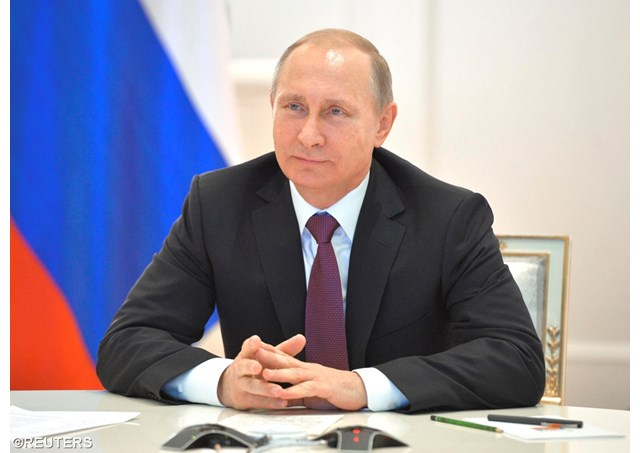
Russia Calls NATO Main Threat In New Doctrine

(Vatican Radio) Russia has identified the NATO military alliance as the nation's number one military threat and raised the possibility of a broader use of precision weapons to deter what it calls foreign aggression. The announcement is part of Russia's new military doctrine signed by President Vladimir Putin on Friday, which also spells out the use of nuclear weapons.
Listen to the report by corresondent Stefan Bos:
The document was inked while Western-backed peace talks with Russia and separatists over the conflict in neighboring Ukraine stalled, despite an exchange of hundreds of prisoners of war.
The new military doctrine includes a 2010 edition version of Russian opinion on the use of nuclear weapons.
It makes clear that the country could employ nuclear weapons in retaliation for the use of nuclear or other weapons of mass destruction against the country or its allies.
And in sentence open for wider interpretation, it also says these weapons could be used in case of aggression involving conventional weapons that "threatens the very existence" of the Russian state.
STRATEGIC DETERRENT
For the first time however the new doctrine says Russia could use precision weapons "as part of strategic deterrent measures."
The doctrine does not say when and how Moscow could resort to such weapons, but it is a clear warning to the NATO military alliance which the document calls Russia's number 1 military threat. .
Experts say he mentioning of precision conventional weapons as a "strategic deterrent" sounds vague, but could be a reference to new weapons. That would make it impossible for NATO to plan a surprise first strike.
Examples of precision conventional weapons include ground-to-ground missiles, air- and submarine-launched cruise missiles, guided bombs and artillery shells.
The paper also mentions the need to protect Russia's interests in the Arctic, where the global competition for its vast oil and other resources has been heating up amid suggestions by several scientists that its ice melts.
WIDER STANDOFF
Friday's doctrine comes amid the biggest East-West standoff since the Cold War over the conflict in Ukraine where Russia annexed the Crimean Peninsula and allegedly supports the pro-Russian separatists in eastern Ukraine with weapons and troops, though Moscow denies this.
Sergey Pashinsky, Head of the Department for Security and Defence in Ukraine’s Parliament, has expressed concerns about Russia's new doctrine and actions.
Russia, he said, "transformed Ukraine from their strategic partner to their strategic enemy. We will not forgive them – neither the annexation of Crimea nor our victims in the east of Ukraine…"
However Pashinsky warned that "Ukraine is ready for such challenges" and added his nation "is developing its military doctrine and we will confront all threats from the Russian Federation.”
Despite the new tensions, Ukrainian authorities and pro-Russia separatists exchanged nearly 370 prisoners Friday, in what was seen as a major step toward easing hostilities in eastern Ukraine.
HUNDREDS RELEASED
Russian news reports said Ukraine handed over 222 prisoners and the rebels released 145 people.
Yet peace talks in Minsk on how to end a conflict that has killed more than 4,700 people did not continue as planned Friday.
The negotiations were halted amid wider disputes with Russia and its allies, including Ukraine's parliament's decision to open the door to NATO membership.
Additionally Ukraine on Friday suspended train and bus services to the Russia-annexed Crimean Peninsula, citing security concerns, while the Visa and MasterCard companies announced Friday they stopped their credit card services in Crimea to meet the latest U.S. sanctions.
| All the contents on this site are copyrighted ©. |


